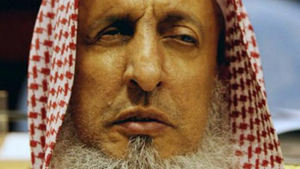 Riyadh, Feb 24: Saudi Arabia’s Grand Mufti and President of Council of Senior Scholars and General Presidency of Scholarly Research and Ifta Sheikh Abdulaziz Bin Abdullah Al-Sheikh has appealed to citizens and residents, especially the wealthy to contribute generously to the Saudi National Campaign to Support Brothers in Syria
Riyadh, Feb 24: Saudi Arabia’s Grand Mufti and President of Council of Senior Scholars and General Presidency of Scholarly Research and Ifta Sheikh Abdulaziz Bin Abdullah Al-Sheikh has appealed to citizens and residents, especially the wealthy to contribute generously to the Saudi National Campaign to Support Brothers in SyriaHe commended the role being played by the Saudi National Campaign to support the Syrian people, particularly its general supervisor, Minister of Interior Prince Muhammad Bin Naif for his efforts for the relief of the Syrian people, support for their cause and alleviation of their sufferings.
Meanwhile, at least 14 people were killed and 70 wounded in a car bombing on Sunday near a field hospital in a Syrian town on the border with Turkey that serves as a main supply line for rebels fighting President Bashar Al-Assad, activists said.
The attack shattered relative calm in a region of far northern Syria that has been a safe haven for thousands of refugees fleeing the three-year civil war.
The bomb exploded in the town of Atmeh, situated amid olive groves opposite the Turkish village of Bukulmez in the province of Hatay. The target was a hospital owned by Ghassan Abboud, a pro-opposition businessman who owns Orient Television.
Orient Television, based in Dubai and broadcasting into Syria, has been vehement in its criticism of the Islamic State of Iraq and the Levant (ISIL), an Al-Qaeda splinter group that has seized several strategic areas along the border and choked supply lines to more moderate rebel groups in the interior.
A doctor at a state hospital in Reyhanli across the border in Turkey, a strong backer of the Syrian rebels, said several wounded Syrians were brought there, some in critical condition. “The façade of the hospital
was blown off. Most of the casualties were transported to Bab al-Hawa (crossing) and to another hospital in Atmeh. Some of the worst cases reached Turkey,” said witness Abdallah Saleh.
“This barbaric attack took place against a hospital that treats the wounded from the bombs of death the regime is using on liberated areas. Orient Foundation accuses the Assad regime of being behind the attack,” an Orient statement said.





Comments
Add new comment